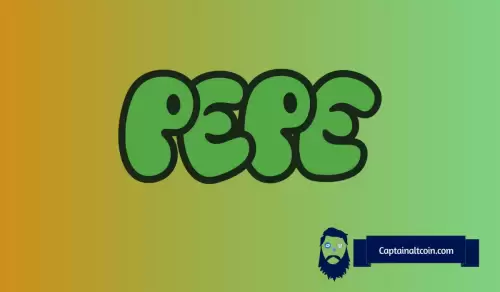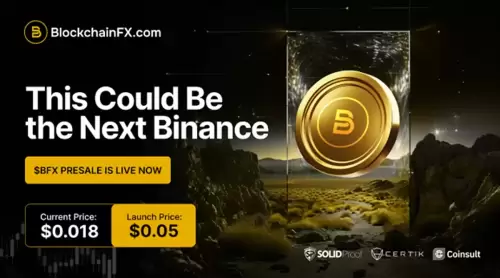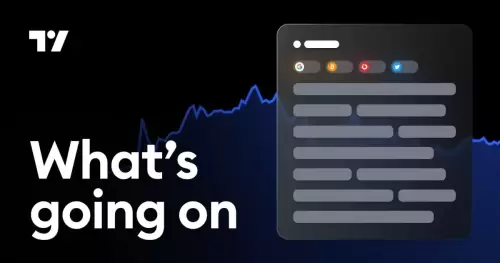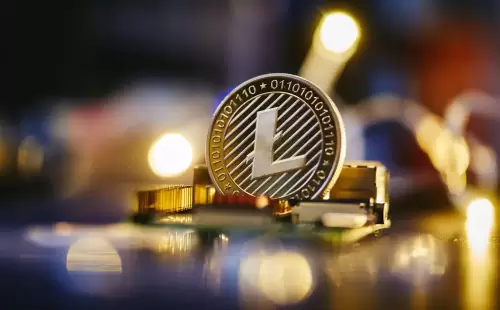 |
|
 |
|
 |
|
 |
|
 |
|
 |
|
 |
|
 |
|
 |
|
 |
|
 |
|
 |
|
 |
|
 |
|
 |
|
Cryptocurrency News Articles
Jamie Dimon's About-Face: JPMorgan Chase Embraces Bitcoin
May 21, 2025 at 10:32 am
The glass-and-steel towers of Wall Street quivered with surprise as Jamie Dimon, the battle-tested CEO of JPMorgan Chase

"New York, New York, May 21, 2025—The glass-and-steel towers of Wall Street quivered with surprise as Jamie Dimon, the battle-tested CEO of JPMorgan Chase, revealed a long-awaited pivot: the bank would, for the first time, permit clients to buy Bitcoin.
The soft-spoken titan, once famous for caustic dismissals of Bitcoin as “worthless” and “the pet rock,” sat before shareholders with a wry smile. “We are going to allow you to buy it,” Dimon announced, sending a ripple through financial circles.
For years, Dimon’s skepticism was legend—echoed across boardrooms, summits, and cable networks. He shivered at Bitcoin’s shadowy origins, its use by money launderers and silk-roaders, and the murky ledger of crypto wallets. Yet he championed freedom of choice. “I don’t think you should smoke, but I defend your right to smoke. I defend your right to buy Bitcoin.” His words landed like a chess piece shifted across a well-worn board, signaling not just acquiescence but grudging respect for his clients’ autonomy.
The move strategically aligns JPMorgan with rivals Morgan Stanley and others already exposing clients to the volatile world of Bitcoin-exchange traded funds (ETFs). These trusted giants now stand shoulder-to-shoulder, bowing to growing pressure from investors hungry for digital gold. JPMorgan won’t hold Bitcoin itself—a guardian, not a vault—but will record digital assets on customer statements, threading a cautious path between innovation and risk.
Dimon’s reservations burn as brightly as ever. Behind the scenes, he voices suspicion toward a currency built atop anonymity—wary of regulators, hackers, and the persistent, untraceable flow of illicit funds. He made headlines at the World Economic Forum, branding Bitcoin “the pet rock” in 2024, yet now steers his $3 trillion empire toward its shores. The irony is as thick as the city’s summer air: the man who once scoffed at blockchain’s revolution is now forced, by markets and momentum, into a wary embrace.
As dawn breaks over Manhattan, the once-unthinkable feels almost inevitable. Clients of America’s largest bank can now ride the Bitcoin wave, statements to prove it, even as their CEO remains the perennial doubter. For some, it’s the ultimate Wall Street paradox; for others, a necessary leap toward a digitized future.
Will Jamie Dimon’s caution prove prophetic—or will JPMorgan’s client-first posture cement its dominance in an age where every dollar, and now every digital coin, counts? Only time will tell. But the era of “no crypto at JPMorgan” has come to an end, and the world is watching.
Key Takeaways
JPMorgan Chase is finally permitting its clients to buy Bitcoin, marking a significant shift in policy from the CEO, who has previously expressed skepticism towards cryptocurrencies.
The move follows pressure from investors and follows a decision by rival firm Morgan Stanley to allow clients to trade Bitcoin-linked trusts.
The bank will also be keeping an eye out for any suspicious activity in accordance with Know Your Customer (KYC) and anti-money laundering (AML) regulations.
Despite his misgivings, Jamie Dimon ultimately respects his clients' right to invest as they choose.
Pros & Cons, Controversies, and Limitations
Future trends and forecasts for the next years
With JPMorgan Chase joining peers like Morgan Stanley in supporting Bitcoin, expect more major financial institutions to embrace digital assets. This competitive dynamic is likely to push mainstream banks and investment firms towards broader crypto offerings, such as integrated trading and custodial services.
The measured entry into crypto by banks may accelerate the development and adoption of Bitcoin ETFs and other regulated financial instruments. Leading asset managers, such as BlackRock and Fidelity, are already building platforms for digital asset ETFs and related products, paving the way for further mainstream acceptance.
While regulators like the Federal Reserve and FDIC signal gradual openness, the crypto market will probably see more policy tightening, especially regarding know-your-customer (KYC) and anti-money laundering (AML) rules. Future regulatory clarity will be crucial for broader adoption among traditional financial players.
As client demand intensifies, expect banks such as JPMorgan Chase and Morgan Stanley to roll out more user-friendly tools—statement integration, digital portfolio analytics, and perhaps access to new cryptocurrencies beyond Bitcoin—amid ongoing risk management.
Skepticism is giving way to cautious engagement at the industry’s highest levels. Watch for increased investment research, educational resources, and thought leadership from financial giants, likely impacting how both retail and institutional investors view digital assets in the near future.
Disclaimer:info@kdj.com
The information provided is not trading advice. kdj.com does not assume any responsibility for any investments made based on the information provided in this article. Cryptocurrencies are highly volatile and it is highly recommended that you invest with caution after thorough research!
If you believe that the content used on this website infringes your copyright, please contact us immediately (info@kdj.com) and we will delete it promptly.
-

-

- POL Price Rebound: Will Consolidation Lead to a Breakout?
- Aug 05, 2025 at 08:02 pm
- After a period of consolidation, Polygon's POL token (formerly MATIC) is showing signs of a price rebound. Key network upgrades and increased on-chain activity suggest growing confidence. Can POL break through resistance?
-

-

-

-

-

-

-






























































